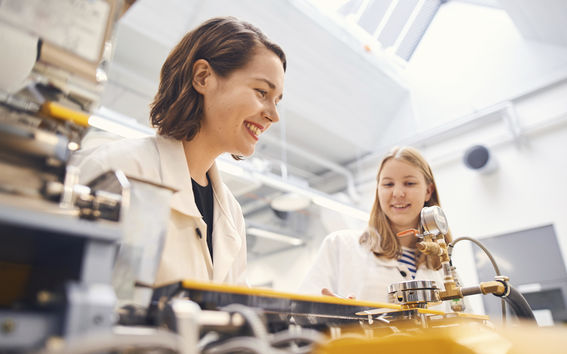Patent numbers increase when there is a need for change – applications from Aalto University have increased fivefold since 2012

The large-scale changes brought about by the coronavirus pandemic may have been part of why the number of patent applications, which had been declining for a long time, turned to growth in Finland in 2020.
Aalto University applied for the fourth-highest number of patents. The university's new living strategy emphasizes the importance of sustainable development in all the university's activities and encourages researchers to solve problems related to sustainable development goals.
"Usually, patent application numbers increase when there is a great need for change – like when something completely new is being formed. A lot of innovative solutions, especially for things related to sustainable development, are being patented right now," Janne Laine, Vice President for Innovation at Aalto University, stated in a recent YLE interview.
A great example of a patent packagerelated to sustainable development is the Ioncell technology tackling the global textile waste problem. Its environmentally friendly technology can be used to make fabric fiber from cellulose and recycled textiles.
Ioncell fiber's fabric has been seen in Mrs. Jenni Haukio's Independence Day celebration dress in 2018, among other places.
"Ioncell technology is at the heart of Aalto's global sustainability agenda," Laine says.
Finland's first supercomputer in the making
A particular cause for pride for Laine is the quantum technology company IQM, which is a company spin-off from Aalto University's and the Technology Research Center VTT's shared ecosystem. The company was among the five most-funded startups in Finland in 2020, with a funding pot of 50M.
The IQM team is currently building Finland's first quantum computer. One of the innovations developed in Aalto in 2020, a nano-sized measuring device bolometer, is also used in the building process. The graphene-based device is so small that it can fit inside a bacterium.
"I am fascinated by patents in the field of quantum technology. These inventions lead the way towards the supercomputers of the future and have diverse applications, such as the design of new drugs," Laine says.
"In general, patents are widely applied for in various fields of technology, in addition to biomaterials, especially in the fields of physics, neuroscience, information technology, mechanical engineering, electrical engineering and information networks."
Patent applications from Aalto University have increased fivefold since 2012.
"However, it must be remembered that some of our inventions are transferred to companies through business cooperation, which is not reflected in the number of our patents," Laine notes.
From ideas to impact
A strong patent is a clear signal of the research idea's business potential and the existence of the problem that the research team in question is set to solve.
For Laine, patenting is an essential part of the process in which research ideas end up being beneficial to the wider society. IQM's journey from Aalto University's research laboratories to the Finnish startup ecosystem's roaring success story – and the first Finnish quantum computer builder – is an excellent example of this.
Aalto University's infrastructure provides support for researchers throughout the multi-stage process.
"The first step is the invention announcement, where innovation experts go through the novelty value of the discovery. A multi-stage patenting process typically follows this, and often the patent is also protected in several different countries depending on the commercialization path of the invention. During the patenting process, the aim is to strengthen and clarify the path of utilizing the invention together with researchers."
"In practice, this is often done in Business Finland's Research to Business program, supported by Aalto University's Innovation Services. This pre-commercialization project further strengthens the technology, often creates more patents and seeks the best commercialization path for the invention," Laine says.
When the concept is ready to be transferred forward for use by either a startup or an existing company, a technology transfer is made. Researchers can be involved in a startup that can then apply for the Aalto Startup Center's accelerator program.
The program strengthens the company's commercial capability and gives the team valuable networks and contacts with investors.
This process is called From Ideas to Impact. Similar support is also provided to Aalto University's researchers with the assistance of EIT (European Institute of Innovation and Technology), especially if the projects in question are related to "Knowledge and Innovation Communities" -partnerships hosted by EIT.
"Projects need a variety of support services at different stages of the process: innovation services, business relations services, financial services, legal services and, through the process, the commitment of researchers to bring the excellent research results into practice."
What if... your business could benefit from a hybrid accelerator?
Aalto Startup Centre offers an on-demand tailored program for startups’ needs.

Read more news

Nature of Process: Exhibition by the students of the ‘Personal Exploration’ Course
Nature of Process is a multi-material exhibition of 14 Master´s students of Aalto ARTS
Doc+ connects research impact with career direction
Doc+ panels have brought together wide audiences in February to discuss doctoral careers and their diversity.
Join a Unite! matchmaking event on forging new consortia for Horizon Europe applications
Calling researchers and industry partners to connect at a virtual matchmaking session designed to spark project collaborations for Horizon Europe funding. Registration deadline, 12 March.






